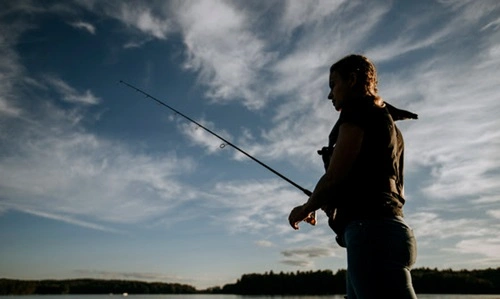Yes, in most states, it is illegal to fish without a valid license, with some exceptions based on age, location, or specific circumstances. Fishing licenses are a critical part of wildlife management, funding conservation efforts, and maintaining sustainable fish populations. Failing to obtain a license can result in fines, penalties, or other legal consequences.
The Importance of Fishing Licenses
Fishing licenses are issued by state wildlife agencies and are required for most recreational and commercial fishing activities in public waters. They serve several purposes:
1. Wildlife Conservation:
- Revenue from fishing licenses supports habitat restoration, fish stocking programs, and research on aquatic ecosystems.
2. Regulation and Management:
- Licensing helps regulate fishing to prevent overharvesting and protect endangered species.
3. Education and Enforcement:
- Licensing funds educational programs for anglers and supports law enforcement in protecting waterways.
1. When Fishing Licenses Are Required
Most states mandate fishing licenses for individuals fishing in public lakes, rivers, and oceans. Here are some typical requirements:
1. Recreational Fishing:
Required for individuals fishing for personal enjoyment, including catch-and-release.
2. Commercial Fishing:
Separate licenses are required for commercial fishing operations targeting specific species or large quantities.
3. Public Waters:
Licenses are typically required for fishing in public waterways, even for non-residents.
Exceptions to the Rule
Some situations exempt individuals from needing a fishing license:
1. Age Exemptions:
Children under a certain age (often 16 or younger) and seniors over a specified age may fish without a license.
2. Free Fishing Days:
Many states designate specific days when anyone can fish without a license to encourage participation.
3. Private Property:
Fishing on private property does not usually require a state-issued license, provided the waterway is entirely contained within the property.
4. Special Permits:
Certain groups, such as military personnel on leave, may qualify for exemptions or reduced-cost licenses.
2. Penalties for Fishing Without a License
Fishing without a license can lead to significant penalties, including:
1. Fines: The cost of fines varies by state but typically ranges from $50 to $500 for a first offense.
2. License Suspension: Repeat offenders may face temporary or permanent suspension of fishing privileges.
3. Equipment Confiscation: In some cases, fishing gear or even boats may be seized if used illegally.
4. Court Costs and Restitution: Offenders may also be required to pay court fees and restitution for any damage caused to fish populations or habitats.
3. How to Obtain a Fishing License
Getting a fishing license is straightforward and can usually be done online, by phone, or at authorized retailers such as sporting goods stores or local bait shops.
- Types of Licenses: Most states offer annual, daily, or lifetime licenses, as well as specialized licenses for saltwater, freshwater, or specific fish species.
- Resident vs. Non-Resident Licenses: Fees are typically lower for state residents and higher for non-residents.
4. Recent Legal Updates (2023-2024)
1. Increased Penalties for Unlicensed Fishing
Several states, including Florida and Texas, have increased fines for fishing without a license to deter illegal activities and support conservation efforts.
2. Enhanced Enforcement
Wildlife agencies are leveraging technology such as mobile apps to verify licenses in real-time and have increased patrols in popular fishing areas.
3. Expanded Access to Licenses
States like California have introduced more flexible licensing options, including one-day or digital licenses, to make compliance easier for anglers.
FAQs About Fishing Without a License
Q1. Is it illegal to fish without a license?
Ans: Yes, fishing without a license is illegal in most states and can result in fines and other penalties, except in certain exempt situations.
Q2. Do I need a fishing license for catch-and-release?
Ans: Yes, most states require a license even for catch-and-release fishing in public waters.
Q3. Can I fish on private property without a license?
Ans: Generally, no license is needed if the waterway is entirely contained within private property and not connected to public waters.
Q4. What are the penalties for fishing without a license?
Ans: Penalties typically include fines ranging from $50 to $500, potential license suspension, and confiscation of equipment for repeat offenses.
Q5. Are there exceptions to needing a fishing license?
Ans: Yes, exceptions include fishing on free fishing days, age exemptions for children and seniors, and special allowances for military personnel or disabled individuals.

